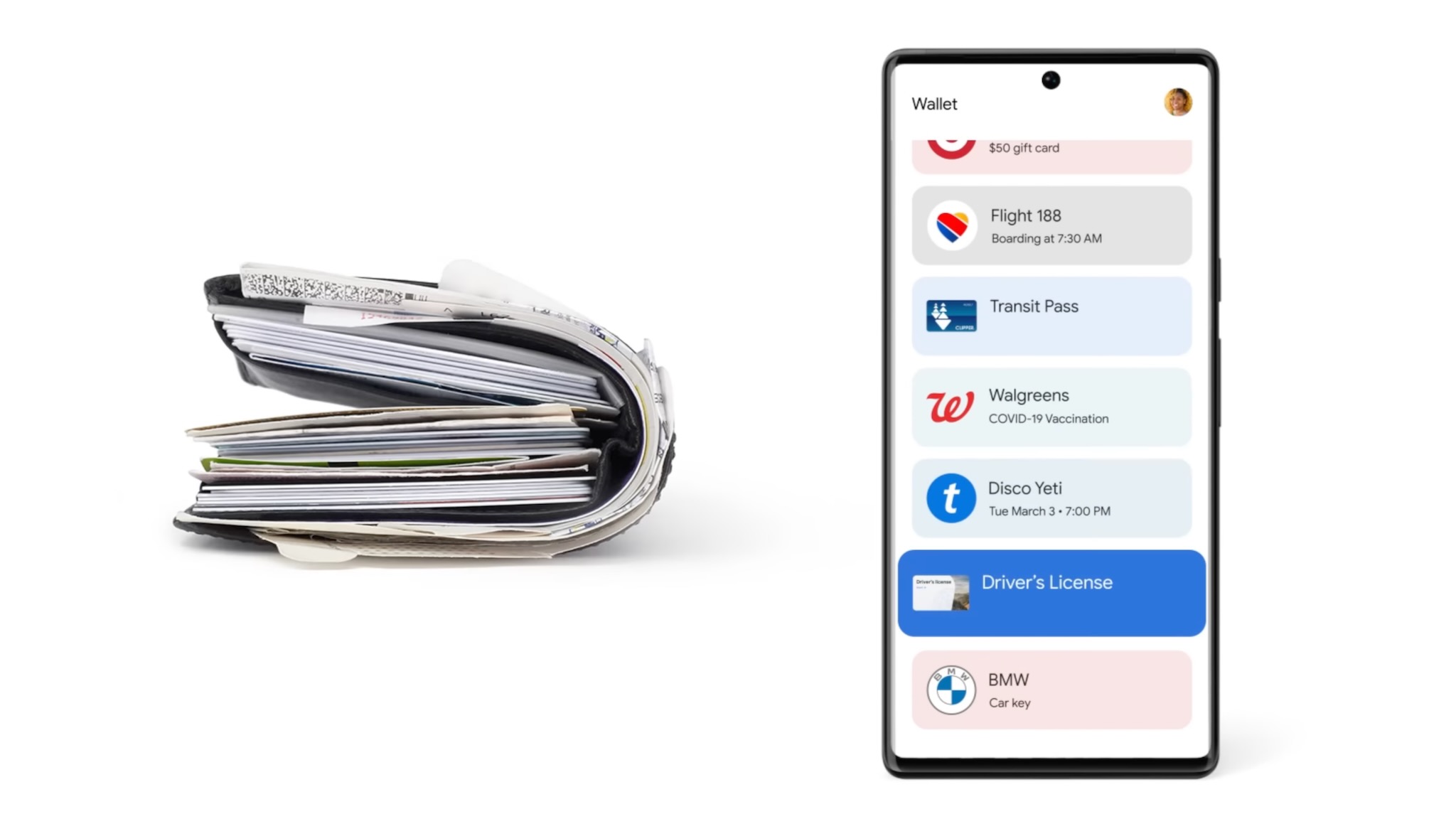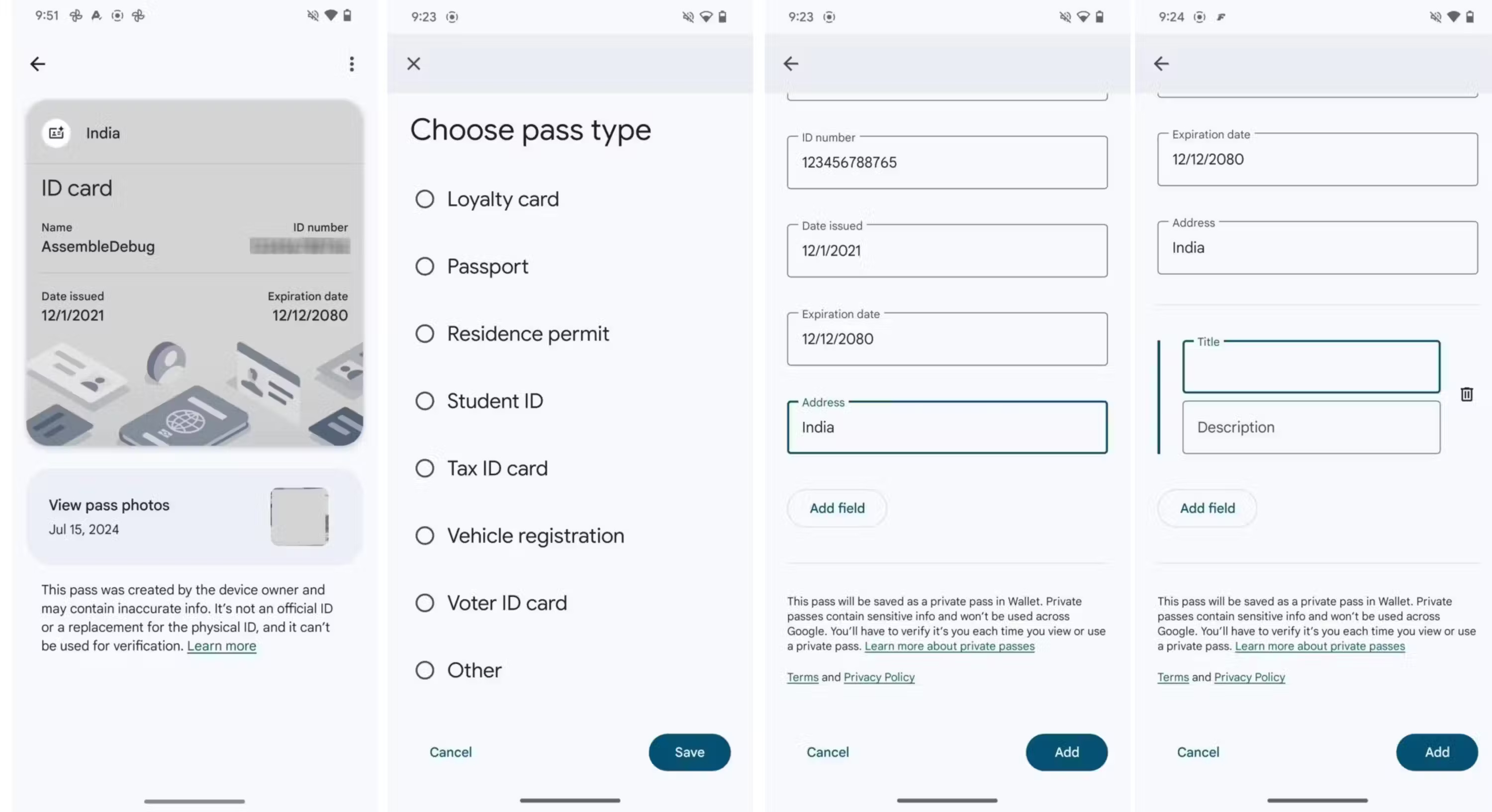Google Wallet will soon let you store 'everything else' in the app
However, Google says it will not save your information on its servers.

What you need to know
- Google is working on a feature that adds text-based documents like student IDs, passports, and resident cards to the Google Wallet.
- The feature is said to automatically detect the document's category and segregate it as general or private. Private documents need to be authenticated by the user.
- Google also says that the company will not store any information about private passes on its system; it will be stored locally on the device.
Update (July 18, 11:44 am ET): Google confirmed that this feature has started rolling out to devices. However it remains unclear which devices the latest Google Wallet feature will first be spotted in.
Imagine not having to frantically shuffle through your luggage to look for important documents at the airport and simply showing your phone at the counter. Google seems to be working on a handy feature that allows users to scan and store text-based documents in their digital wallets for easy storage and access.
A recent APK teardown by AssembleDebug showed this feature in action. It looks like it can automatically identify several different types of documents (via Android Authority), such as passports, resident permits, student IDs, and even auto insurance.

1. Prime Day smartwatch deals
2. Prime Day phone deals
3. Prime Day tablet deals
4. Prime Day smart home deals
5. Prime Day smart TV deals
The publication notes that the 'Add to Wallet' menu will have a new option called 'Everything else.' Through this, users can take a photo of their document in question, and Google Wallet will automatically scan it and save a digital version onto the app. The app allows you to edit and review your information in case it was wrongly captured. Users can also make changes to their ID number, date of expiration, name, and address. However, before you scan your document, users must agree to a disclaimer.
The disclaimer reads, "Scan a photo of your pass, and Google will use AI to create a digital version of it in Google Wallet."
"Google will use the photo of your pass to determine what kind of pass you're adding and to suggest the content of the pass."
Once agreed upon, your phone will capture the document and segregate it into two sections: normal and private. Private IDs are locked and need the user's authentication to be accessed. If the feature doesn't categorize the document, users can manually choose and fill in relevant information by clicking "add field"—only five additional fields can be added.
Get the latest news from Android Central, your trusted companion in the world of Android
"You'll have to verify each time you view or use a private pass," the disclaimer states.
Google also says that the company will not store any information about private passes on its system; it will be stored locally on the device.
It remains unclear when this feature will be rolled out to all users; however, it seems fully functional on the APK teardown. Android Central has contacted Google about this, but it did not get back to us in time for publication. We will update this article once we have more information.

Nandika Ravi is an Editor for Android Central. Based in Toronto, after rocking the news scene as a Multimedia Reporter and Editor at Rogers Sports and Media, she now brings her expertise into the Tech ecosystem. When not breaking tech news, you can catch her sipping coffee at cozy cafes, exploring new trails with her boxer dog, or leveling up in the gaming universe.
You must confirm your public display name before commenting
Please logout and then login again, you will then be prompted to enter your display name.

